In the wild west of crypto, securing your digital assets is key. A crypto wallet is a must have tool to store, manage and transfer assets like Bitcoin and Ethereum safely. Unlike a traditional bank account, a cryptocurrency wallet gives you full control of your digital wealth, with private keys and various security features. But choosing the right crypto wallet, including bitcoin wallets, is crucial to protecting your investment.
Crypto wallets come in two flavours: Hot wallets and Cold wallets. Hot wallets are online wallets that are perfect for frequent transactions, ideal for active traders. Cold wallets store cryptocurrency offline, for maximum security, for long term holders.
In this post we’ll cover both, the top 10 Hot wallets and 10 Cold wallets. Each wallet will be reviewed for pros and cons so you can decide which is best for you. Whether you need convenience or maximum protection, this guide will help you store your cryptocurrency safely and transfer assets when you need to.
What Is a Cryptocurrency Wallet?
A cryptocurrency wallet is a software program that allows users to store, send, and receive digital currencies like Bitcoin, Ethereum, and others. Think of it as a digital equivalent of a physical wallet, but instead of holding cash, it stores the private keys that give you access to your cryptocurrency funds. These private keys are crucial because they authorize transactions and provide proof of ownership over your digital assets. Essentially, a cryptocurrency wallet acts as a secure container for your digital wealth, enabling you to manage your assets safely and efficiently.
Understanding Cryptocurrency Wallets
Cryptocurrency wallets operate using a combination of public and private keys to facilitate transactions. The public key functions like an email address, allowing you to receive cryptocurrency from others. On the other hand, the private key is akin to a password, used to authorize the sending of cryptocurrency. When you initiate a transaction, your wallet uses the private key to create a digital signature, which is then verified by the blockchain network. This process ensures that the transaction is secure and irreversible, safeguarding your digital assets from unauthorized access.
Types of Crypto Wallets
There are several types of cryptocurrency wallets available, each offering unique features and benefits to cater to different user needs:
- Hardware Wallets: These are physical devices that store your private keys offline, providing an additional layer of security. Examples include Ledger and Trezor, which are known for their robust security features and support for multiple cryptocurrencies.
- Software Wallets: These are applications that run on your computer or mobile device, allowing you to store and manage your cryptocurrency funds. Popular software wallets like Exodus and Atomic Wallet offer user-friendly interfaces and support for a wide range of digital assets.
- Paper Wallets: These are physical documents that contain your public and private keys, often printed in the form of a QR code. While paper wallets are a low-tech solution for storing cryptocurrency, they can be vulnerable to loss or damage, so they require careful handling.
- Online Wallets: These are web-based wallets that store your cryptocurrency funds online. Examples include Coinbase and Binance, which offer the convenience of accessing your funds from any device with an internet connection, though they come with higher security risks compared to offline options.
What is a Hot Wallet?
A hot wallet is a type of cryptocurrency wallet that is always connected to the internet. Perfect for quick and easy access to your digital assets. Popular among active traders and users who do transactions regularly as you can transfer crypto from one wallet to another instantly. Since they are online, you can access them via computer or mobile, making them super convenient for daily use. Mobile wallets, designed for iOS and Android platforms, further enhance this convenience by enabling quick payments through technologies like near-field communication (NFC) and QR code scanning.
Hot wallets are great for frequent crypto transactions as you can buy, sell and exchange digital currencies quickly. However since they are always connected to the internet they are more prone to hacking or security breaches compared to offline storage options. But hot wallets have various security features like passwords, encryption and two-factor authentication so they are a popular choice for users who prioritise convenience and ease of use.
Top 10 Hot Wallets
Hot wallets are a must for anyone who’s active in cryptocurrencies. These software wallets are known for their user friendly interfaces and you can do crypto transactions seamlessly. Below is the list of top 10 hot wallets, each reviewed for pros and cons to help you decide which one is best for you.
1. Coinbase Wallet
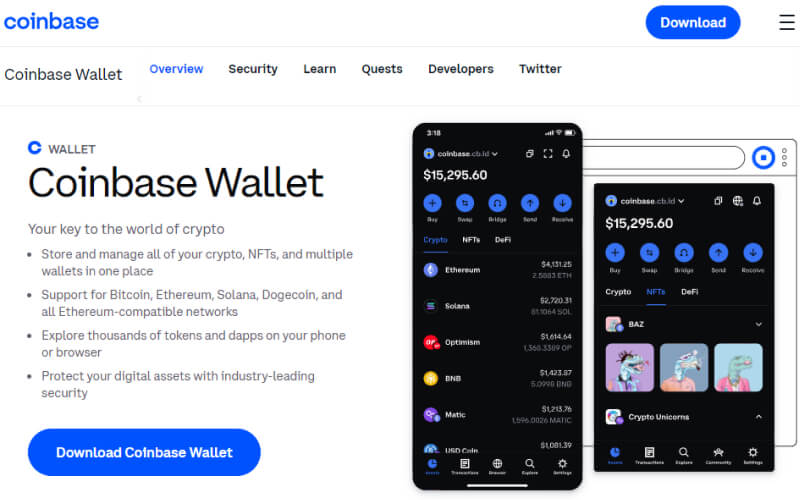
Coinbase Wallet is loved for its simplicity and built-in exchange. You can buy crypto and transfer it between wallets with just a wallet address. Easy to use for both beginners and pros.
- Pros: User friendly, built-in exchange.
- Cons: Not for cold storage.
2. MetaMask
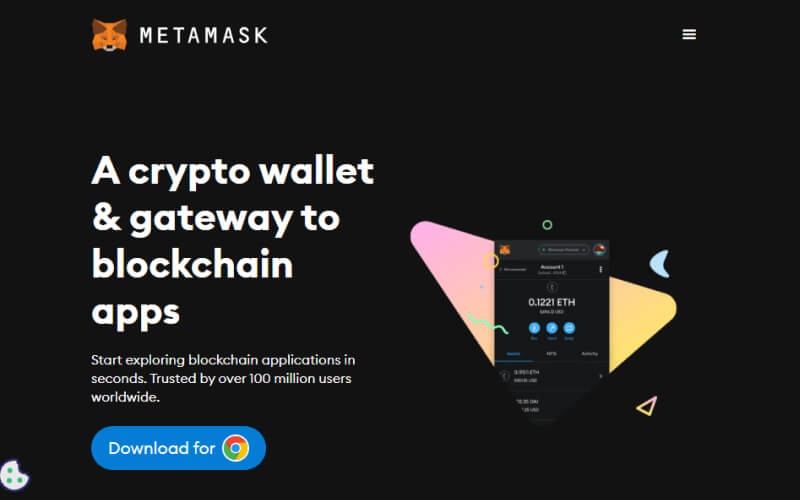
MetaMask is one of the most popular DeFi wallets, great for dApps. Good for users who interact with dApps. But online presence requires additional security measures.
- Pros: Good for decentralized Apps.
- Cons: Security risks if not protected.
3. Trust Wallet
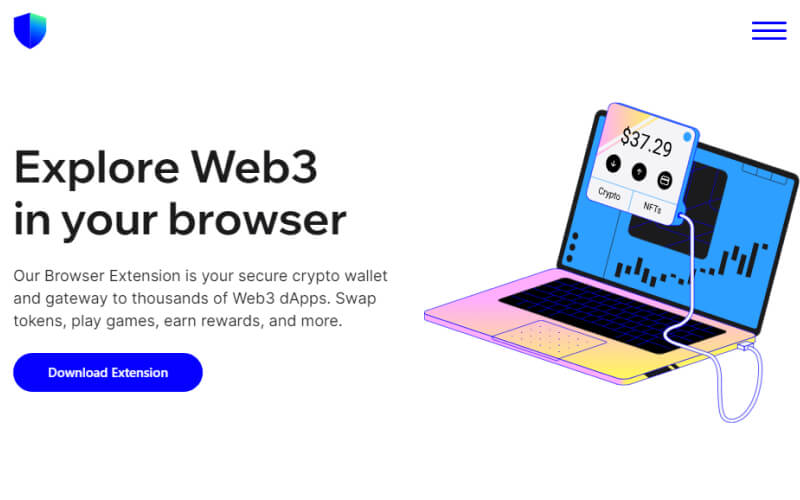
Trust Wallet is versatile, supports many coins. Highly rated mobile wallet for users who want to manage multiple coins on the go. But no desktop version.
- Pros: Supports other coins.
- Cons: No desktop app.
4. Exodus Wallet
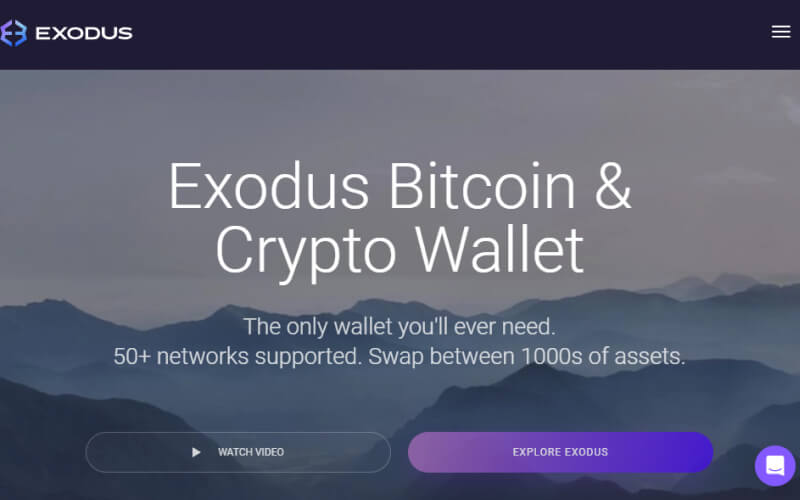
Exodus is a pretty software wallet where you can buy and swap bitcoin within the app. The interface is nice and easy to use but not fully open-source.
- Pros: Nice design, built-in exchange.
- Cons: Not fully open-source.
5. Atomic Wallet

Atomic Wallet is good for staking, you can stake cryptocurrency and earn rewards. But wallet charges extra fees for swaps which might be a con for some users.
- Pros: Supports staking.
- Cons: Extra fees for swaps.
6. Electrum
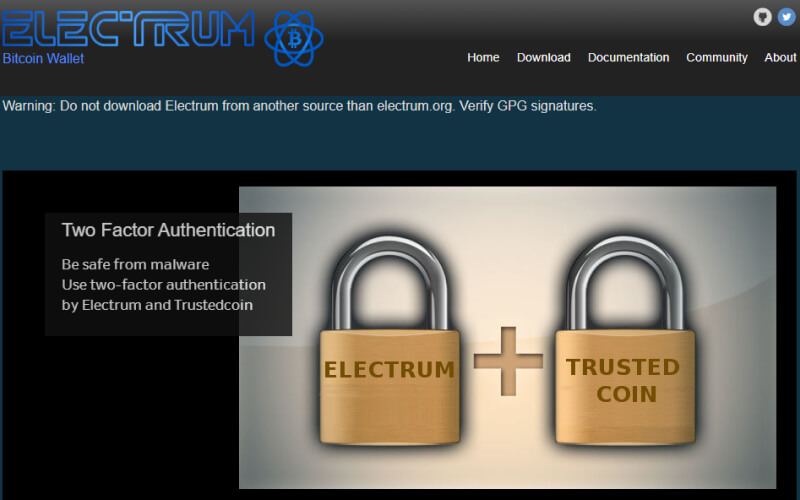
Electrum is highly customizable wallet for Bitcoin only. Not good for users who hold multiple types of cryptocurrency.
- Pros: Highly customizable.
- Cons: Bitcoin-only wallet.
7. Mycelium
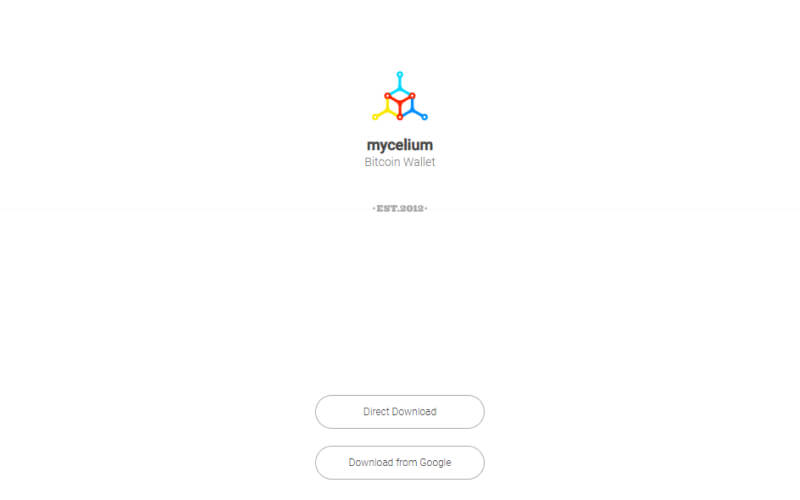
Mycelium is good for users who need a mobile wallet for Bitcoin transactions. Secure, mobile-first experience but no support for many coins.
- Pros: Good for mobile use.
- Cons: Limited coin support.
8. ZenGo
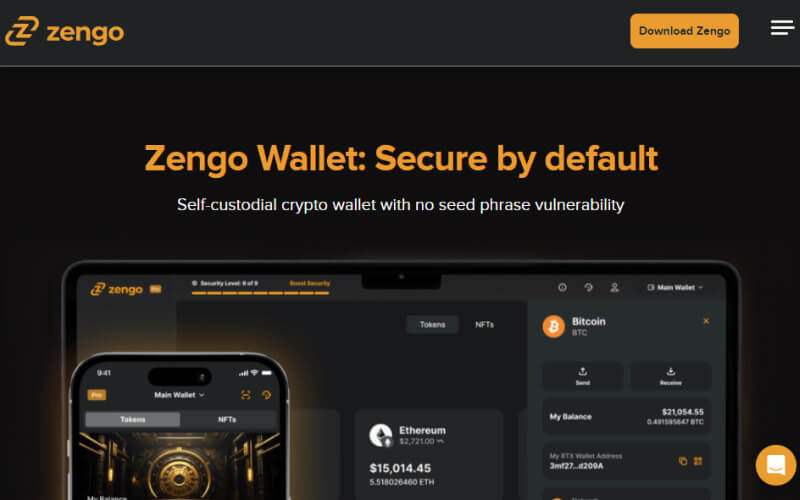
ZenGo is unique in that it doesn’t require users to manage private keys. Instead it uses advanced encryption. User-friendly but less secure for those who prefer traditional security methods.
- Pros: No private key management required.
- Cons: No advanced security.
9. Guarda Wallet
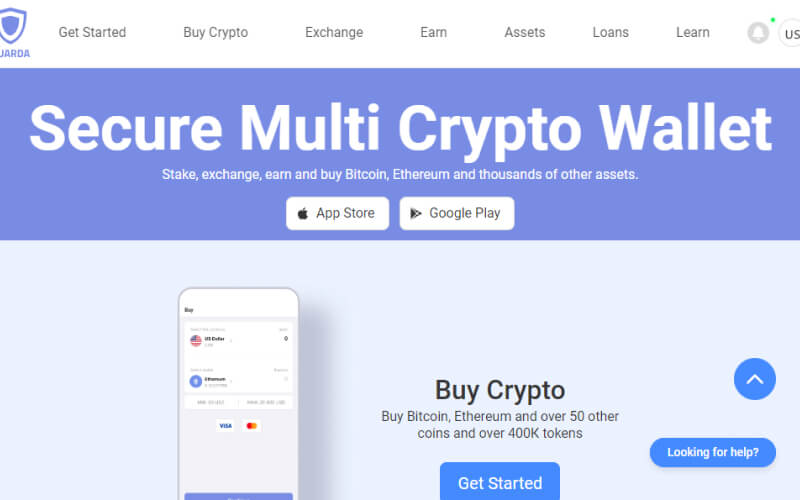
Guarda is multi-currency wallet that supports non-fungible tokens (NFTs). Good for users interested in digital art and collectibles. But advanced features might be overwhelming for beginners.
- Pros: Supports non-fungible tokens (NFTs).
- Cons: Advanced features are difficult for beginners.
10. Edge Wallet
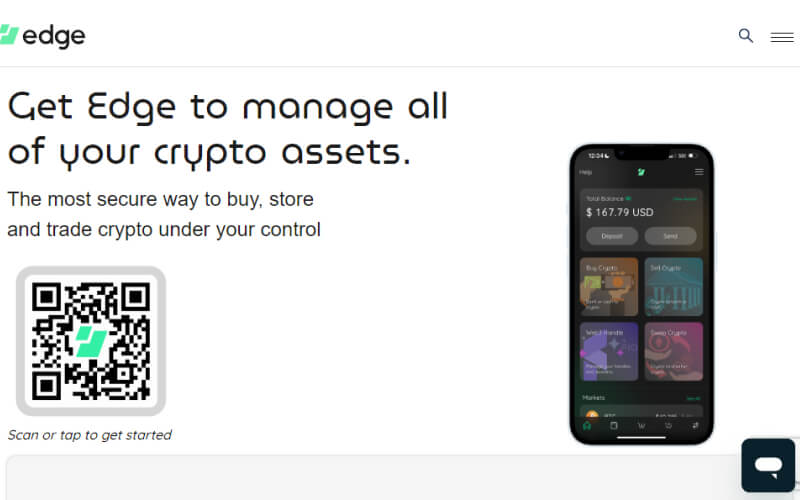
Edge Wallet is good for newbies, simple and easy to use. Basic features for beginners but some concerns with private data.
- Pros: Easy for beginners.
- Cons: Private data concerns.
Here are 10 hot wallets to suit different needs, from beginner friendly to advanced security and DeFi support. By knowing the pros and cons you can choose the best crypto wallet for you and your security preferences.
What is Cold Wallet?
A cold wallet is an offline cryptocurrency wallet that provides more security by being offline. Unlike hot wallets that are always online, cold wallets (also known as hardware wallets or paper wallets) are for cold storage—a way to store cryptocurrency for long term holding.
These wallets are for users who want to protect sensitive information like private keys and minimize the risk of hacking or theft. Since cold wallets are not online, they offer more security, so they’re great for storing large amounts of digital assets. But since they’re offline, crypto transactions with cold wallets require the user to manually connect the wallet to a device, so not so good for frequent transfers but perfect for storing cryptocurrency for long term.
Top 10 Cold Wallets
Cold wallets are for long term storage of cryptocurrencies, more security against online threats. Here’s a breakdown of the top 10 cold wallets, pros and cons to help you choose for your digital assets.
1. Ledger Nano X
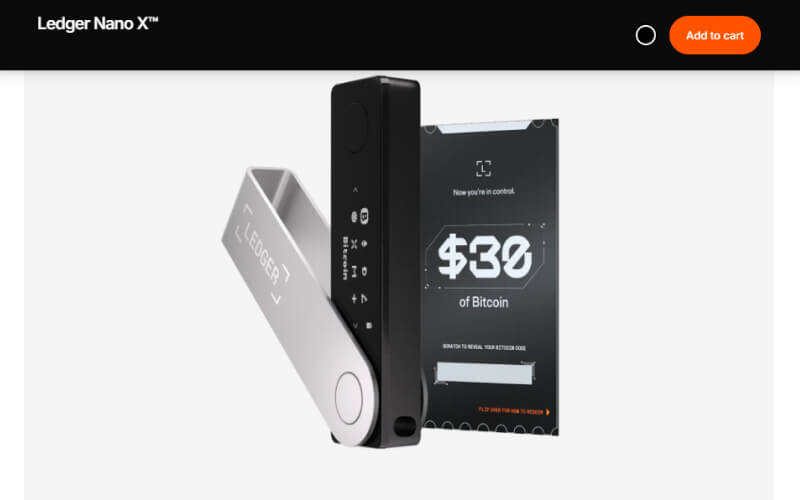
Ledger Nano X is a top hardware wallet that balances security and convenience. It has Bluetooth connection so you can manage your cryptocurrencies on your mobile device seamlessly. Supports multiple coins so it’s for users who want options in storage.
- Pros: Bluetooth connection, multiple coins.
- Cons: Expensive.
2. Trezor Model T
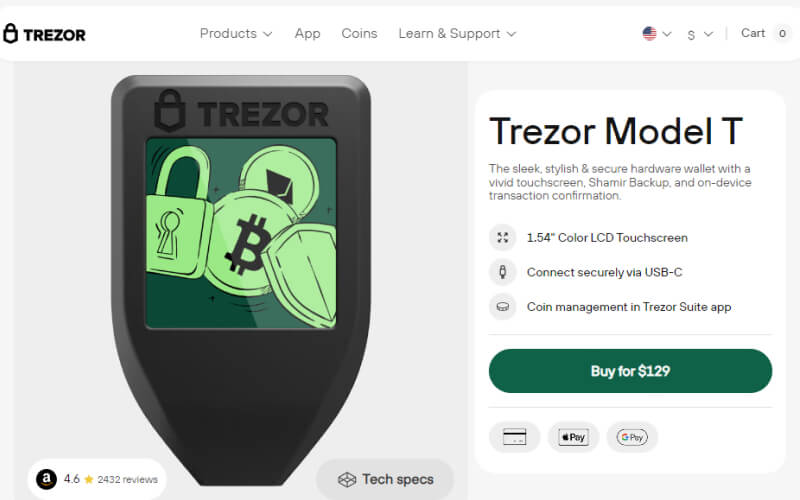
Trezor Model T has great security features and user friendly interface. Touchscreen and can store many cryptocurrencies, perfect for those who want security without sacrificing usability.
- Pros: Great security features, user friendly.
- Cons: Expensive.
3. Ledger Nano S Plus
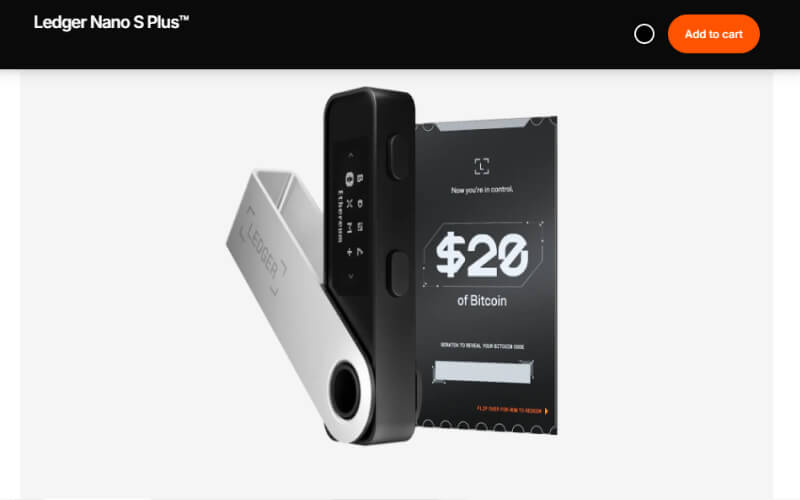
Ledger Nano S Plus is an affordable and small hardware wallet with robust security features. No Bluetooth connection but stores multiple cryptocurrencies safely, great for entry level.
- Pros: Affordable, compact.
- Cons: No Bluetooth connection.
4. KeepKey

KeepKey has a large display so you can manage transactions and monitor balances. Cold wallet is affordable but only supports limited coins so may not be suitable for users with diverse portfolio.
- Pros: Large display, affordable.
- Cons: Limited coin support.
5. Coldcard
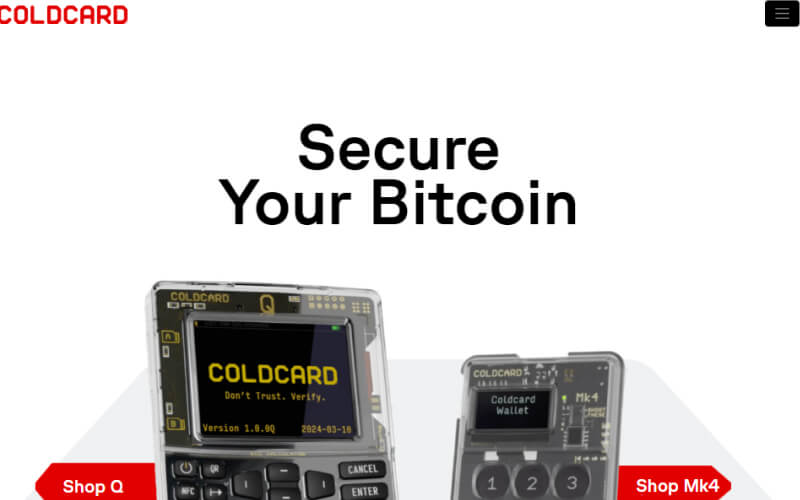
Bitcoin wallets like Coldcard are designed to be super secure and cater to serious Bitcoin users. But complex and focused on security so not for beginners.
- Pros: Bitcoin only wallet, super secure.
- Cons: Difficult for beginners.
6. Ellipal Titan
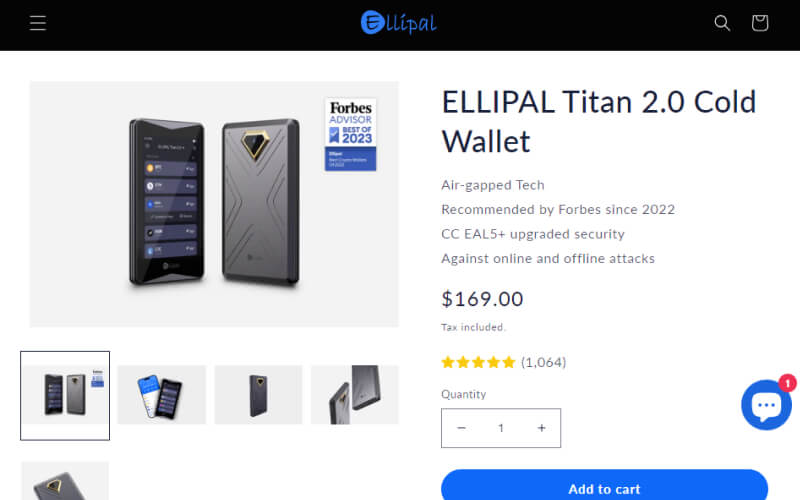
Ellipal Titan wallet is air-gapped, offline, providing an additional layer of security for your crypto assets. While it’s very secure, it’s a bit bulky so not for everyone.
- Pros: Air-gapped.
- Cons: Bulky.
7. SecuX V20
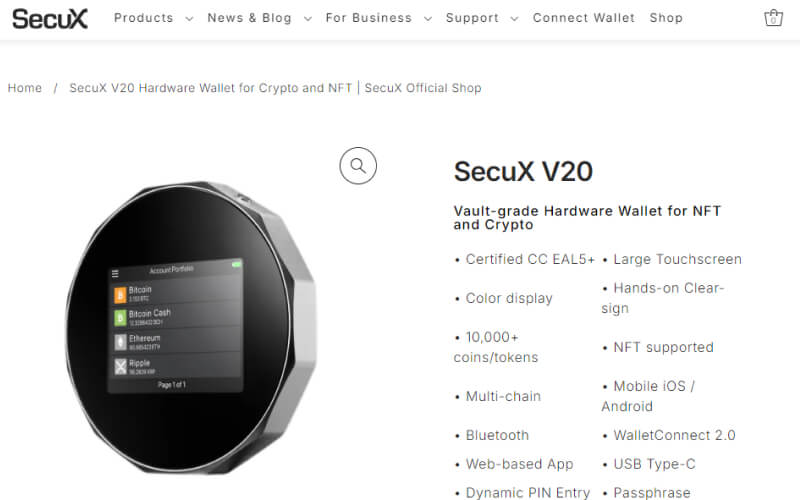
SecuX V20, a wallet created with a touchscreen and support for multiple assets, is good for users who want to store multiple coins. But it’s a bit pricey.
- Pros: Touchscreen, supports multiple assets.
- Cons: Expensive.
8. D’Cent Biometric Wallet
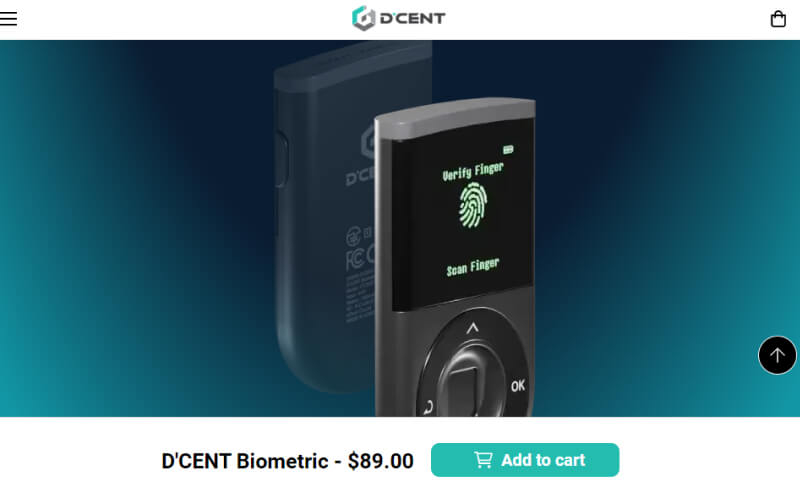
D’Cent Biometric Wallet has a fingerprint scanner for extra security so good for users who want to secure their assets with biometric verification. But it only supports few coins.
- Pros: Fingerprint scanner.
- Cons: Limited coin support.
9. Safepal S1
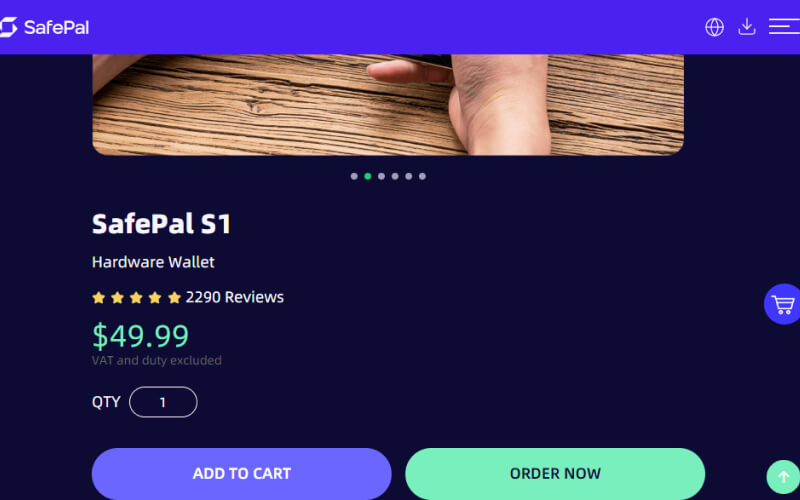
Safepal S1 is an affordable option for cold storage of cryptocurrencies. It lacks some advanced features but good for first time users looking for a secure wallet.
- Pros: Affordable, cold storage.
- Cons: Basic only.
10. BitBox02
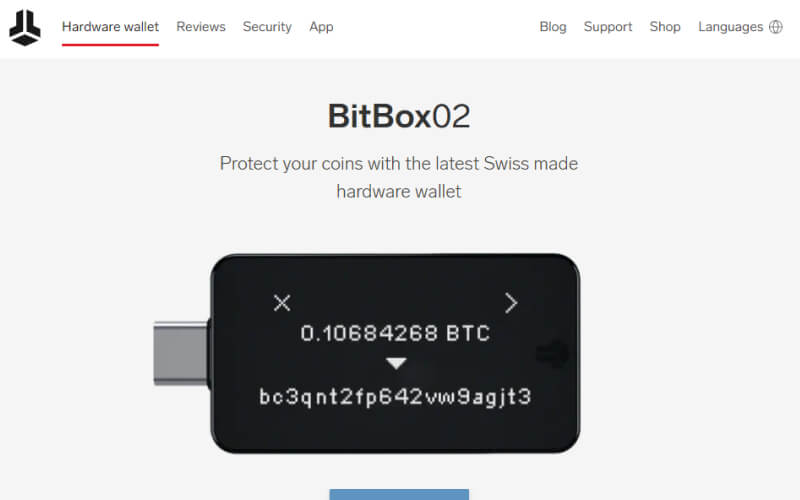
BitBox02 has a compact design and open-source software so good for those who value transparency and simplicity. But small display might be a drawback for those who prefer bigger interface.
- Pros: Compact design, open-source software.
- Cons: Small display.
These top 10 cold wallets are designed for long term security of your digital assets. Each has its own pros and cons so you can find the best one for you in the crypto world.
Security Features of Crypto Wallets
Cryptocurrency wallets come equipped with various security features designed to protect your funds:
- Encryption: This feature scrambles your private keys, making it difficult for unauthorized users to access your wallet.
- Two-Factor Authentication: This adds an extra layer of security by requiring you to enter a code sent to your phone or email in addition to your password.
- Multi-Signature Wallets: These wallets require multiple signatures to authorize a transaction, providing an additional layer of security by involving multiple parties.
- Cold Storage: This involves storing your cryptocurrency funds offline, away from potential hackers, making it one of the most secure methods for safeguarding your digital assets.
Choosing the Right Crypto Wallet
With a plethora of cryptocurrency wallets available, selecting the right one can be daunting. Here are some factors to consider:
- Security: Opt for a wallet with robust security features like encryption and two-factor authentication to protect your private keys and digital assets.
- Ease of Use: Choose a wallet with a user-friendly interface that simplifies the process of managing your funds.
- Compatibility: Ensure the wallet supports your desired cryptocurrencies and is compatible with your device, whether it’s a computer, mobile phone, or hardware device.
- Fees: Be aware of any fees associated with the wallet, including transaction fees and storage fees, to avoid unexpected costs.
- Reputation: Research the wallet’s reputation by reading reviews and feedback from other users to ensure it is reliable and trustworthy.
By considering these factors, you can select a cryptocurrency wallet that meets your needs and provides a secure and convenient way to manage your digital assets.
Conclusion
In the crypto world that’s moving fast, choosing the right wallet is key to managing your digital assets. Whether you’re a active trader or long term holder, the type of wallet you choose will affect your experience and your investment.
Hot wallets are good for frequent transactions, provides quick access and user friendly interface so good for those who buy, sell or trade cryptocurrencies frequently. But they come with security risks since they’re online. Cold wallets are good for long term storage, provides extra protection against hacking and theft by keeping your assets offline.
When choosing between the options, consider your needs and usage. For active users, a reliable hot wallet is enough, for those who want to store their assets securely should go for a robust cold wallet. Ultimately the best choice is the balance between convenience and security so you can protect your investment while enjoying the crypto world.



Pingback: What is Staking Crypto and How It Works - Altorise Hub